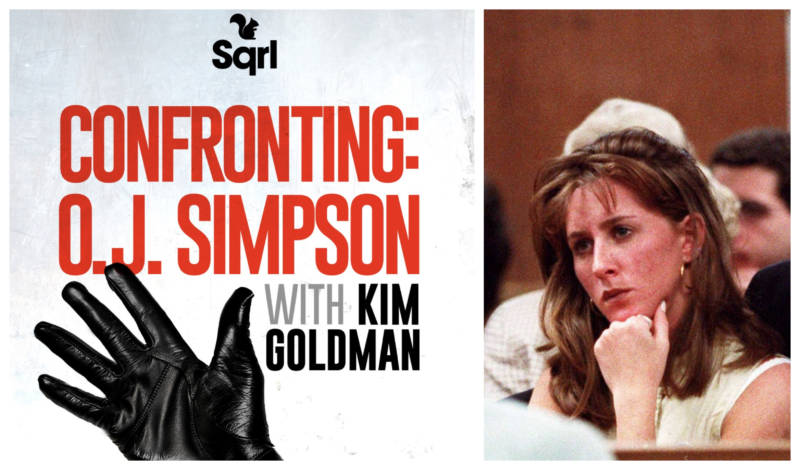"This podcast will help me confront my story and hopefully help others who find themselves in similar situations confront theirs. Even if it means coming face to face with a monster." So begins a new podcast by Kim Goldman, sister of Ron Goldman, the man who was brutally murdered alongside OJ Simpson's ex-wife, Nicole Brown Simpson, as he attempted to return sunglasses she had left behind in the restaurant he worked in.
You'd be forgiven for wondering why this podcast is at all necessary. OJ Simpson's 1995 murder trial is the most thoroughly documented in American history. Not only did the entire thing air on television, it has since spawned dozens of books, documentaries like ESPN's OJ: Made In America and a much-lauded FX mini series. So it's surprising just how revelatory Confronting OJ Simpson is. Launched on the 25th anniversary of Ron and Nicole's murders, the first two episodes aren't just full of new information—some of which even Kim Goldman is hearing for the first time—they paint the case in a new, more muted, but somehow much more devastating light.
Of the many memorable characters this case produced, the person most lost in the chaos was Ron. He was eclipsed by the details of Nicole and OJ's deeply dysfunctional relationship; by the slowest car chase in history; by the social status of the other people involved; by race relations in America. In the end, Ron Goldman was collateral damage in more ways than one.
Confronting spends its first episode elevating Ron from his status as a footnote. For the first time, we have a broad understanding of who he was as a friend, a brother and a boyfriend. We get an understanding of his confidence, charm and bravery. We get a palpable sense of how deeply felt his loss continues to be. Hearing his father Fred sob at the memory of finding out his son was dead ("I walked over to the patio door and I looked out and I just found myself staring and screaming at the same time") and Ron's girlfriend Lauren recalling how she thought he was standing her up ("I left 50 million messages that night… almost blaming messages…") is overwhelming.
Kim also reveals new, heart-wrenching details. She explains that, while Nicole's family was told of the murders by police officers in person, Fred Goldman was informed by a phone call from the coroner. She recalls that, as she sobbed over the not guilty verdict in the courtroom, OJ's most infamous defense attorney, Johnnie Cochrane, made a point of smiling at her "like a 'Gotcha!'" She chokes up at the memory of seeing a white sheet draped over a freeway bridge on her way to the courthouse that day, painted with the words "Goldmans, we love you."


